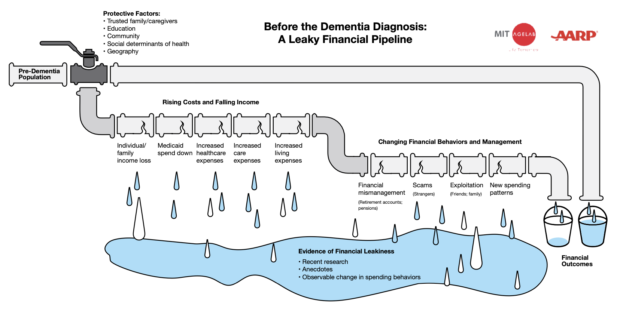Wendy Williams appeared on "The View" this morning to defend herself against claims that she is mentally incapacitated.
The former talk show host, who has been under a court-appointed guardianship since 2022, spoke to the show via phone about why she made the decision to undergo a competency test this week, which she'd previously said she'd passed with "flying colors."
"I needed a breath of fresh air. I needed to see the doctor, so that’s why I went to the hospital," she told the hosts of "The View" about the independent evaluation.
She added, "It was my choice to get an independent evaluation on my incapacitation, which I don’t have it. How dare they say I have incapacitation. I do not."
Williams, who has been living in the memory care unit of an assisted living facility for nearly a year, was discharged from the hospital on Wednesday. In the facility, she claimed that she's not allowed to have visitors, and that she typically stays in her bedroom. She said she's not permitted to leave her floor of the facility.
Host Sunny Hostin shared that the show had received a statement from the care facility's legal team that she hadn't been kept from her family and has received excellent medical care, which Williams continued to deny.
The former "Wendy Williams Show" host also complained about her guardian and the judge involved in her case, saying, "I need them . . . to get off my neck. I can't do it with these two people again."
"I don’t want a guardian . . . It’s been over three years, it’s time for my money and my life to get back to status quo," she insisted.
Williams, along with her caregiver, Ginalisa Monterroso, explained that the guardianship was first put into place in 2022 after her bank froze her account after noticing some unusual spending. She agreed to being appointed a guardian, because she believed the arrangement could help her get her finances under control, but soon afterward, she says the guardian took control of her life.
"At this point in my life, I want to terminate the guardianship and move on with my life, if that's possible at all," she said.
Earlier this week, Williams was taken to a hospital after a 911 call was made to her assisted care facility in New York.
"On Monday, March 10, 2025 the NYPD responded to a welfare check at 505 West 35 Street," the New York Police Department said in a statement provided to Fox News Digital.
"EMS responded and transported a 60-year-old female to an area hospital for evaluation."
According to the New York Post, Williams had thrown a handwritten note that read "Help! Wendy!!" out the window.
One day after being rushed to a New York hospital, she spoke with Rosanna Scotto on a live segment of "Good Day New York" to discuss the outcome of her competency tests, which she says she'd requested herself.
Williams said she passed her tests with "flying colors."
"Everybody knows factually that Wendy is not incapacitated," Monterrosa, who was also present during that interview, told Scotto.
During an appearance on "The Breakfast Club" that same morning, Williams further explained why she had pleaded to go to a medical facility and be evaluated by an independent doctor.
"The police showed up. I'm exhausted. I wanted to go to the hospital to talk to the doctor," Williams told the hosts.
Monterroso said that they have been laser-focused on trying to get "some kind of motion" into the TV personality's guardianship case.
"We were pretty stuck at one point, waiting for the lawyers to break through and get some type of trial," Monterroso said while on "The Breakfast Club." "I did two things. I wrote a letter to the Adult Protective Services and explained to them Wendy's situation. She was isolated and needed an investigation."
"Yesterday morning, during our morning calls, I told Wendy, 'We will be calling the police and telling them that you're isolated.' I pleaded with the police as if Wendy was my child. ‘Please, you need to get her off this floor. She is confined.’"
Williams said that during her chat with law enforcement, she told them, "I am not incapacitated as I've been accused [of]."
"This floor that I live on is the memory unit," Williams explained. "The people who live there don't remember anything, unlike me. Why am I here? What is going on? It's a cry for help."
Earlier this year, Williams denied that she was cognitively impaired and admitted during an interview with "The Breakfast Club" that her guardianship felt like a "prison."
"I am not cognitively impaired, but I feel like I am in prison," Williams said in January. "I’m in this place with people who are in their 90s and their 80s and their 70s. . . . These people, there's something wrong with these people here on this floor. I am clearly not."
"Where I am . . . you have to get keys to unlock the door to press the elevator to go downstairs, first of all. Second of all, these people here, everybody here is like nursemaids, so to speak," she said. Williams admitted that she isn't privy to what medication she's given. "Excuse me, doctor, can you tell me what this pill is for?"
In February 2024, Williams' team announced that she had been diagnosed
with both progressive aphasia and frontotemporal dementia.
Full Article & Source:
Wendy Williams begs medical guardian to 'get off my neck' as she insists she's not mentally incapacitated
See Also:
Wendy Williams Hospitalized Amid Battle Over Guardianship, But It's Not What You Think




























